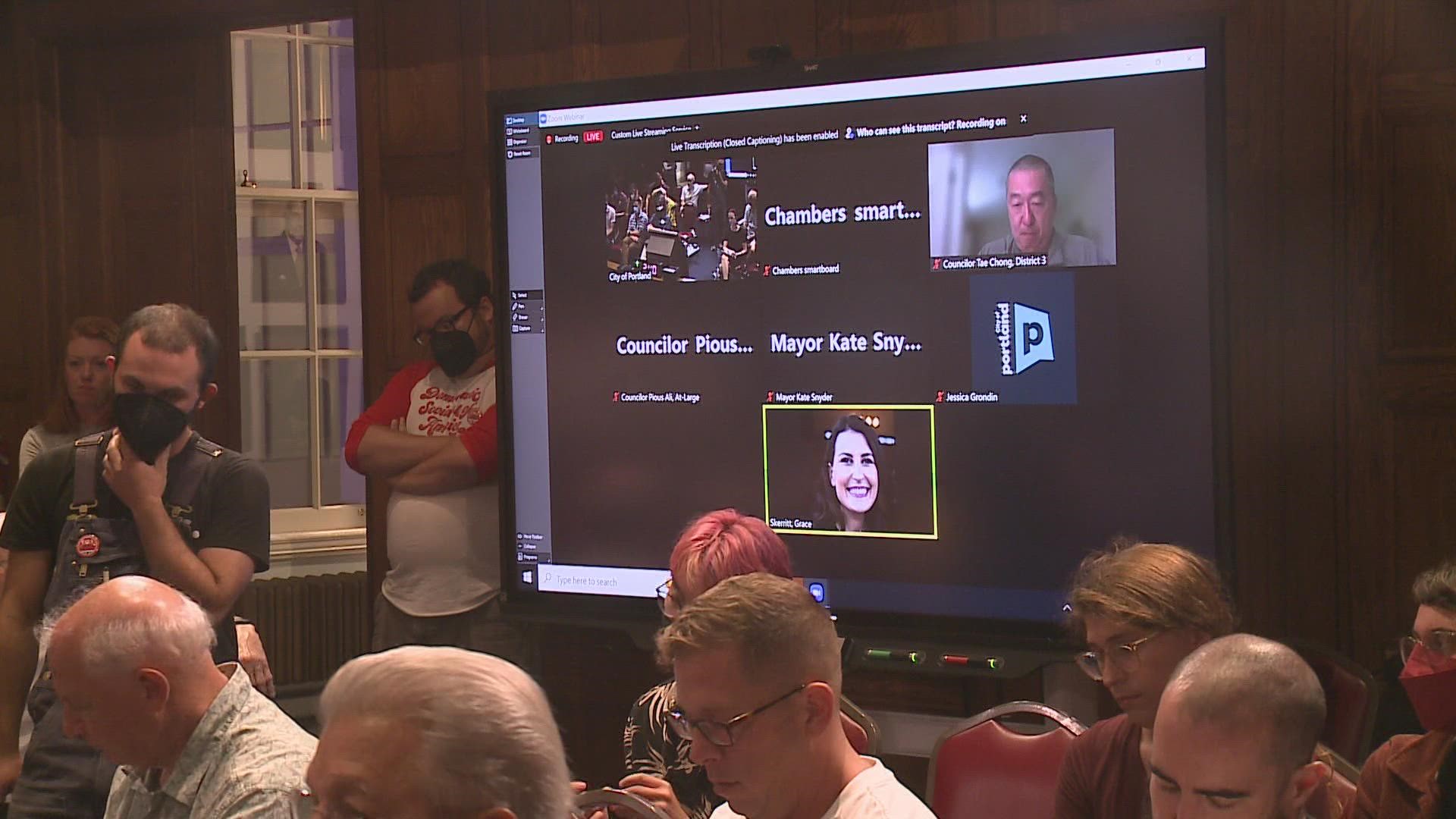PORTLAND, Maine — The Portland City Council voted Monday night to send five citizens initiatives to voters come November.
If passed, the initiatives will: regulate and limit the number of short-term rentals in the Portland area, increase tenant rights and protections including eliminating application fees and limiting rent increases, eliminate sub-minimum wage, and restrict cruise ship movement from the city.
Councilors debated the issues late into the night. The most contentious: minimum wage and cruise ship limits.
The minimum wage initiative would make it so tipped workers in the city would earn $18 an hour. It would also set $18 as the minimum wage for other workers not currently receiving minimum wage, such as taxi and delivery drivers.
If passed, the initiative would create a Department of Labor for the city.
"We deserve a fair shake. A city Department of Labor would help for more granular representation," Lo Hilton with Maine DSA said.
But not everyone who testified Monday night was in favor of the move, fearing it would drastically impact how much servers receive in tips.
"Tip credit elimination would cut our earnings off and it would be disastrous for our industry," Joshua Chaisson said. "A tip wage system allows us to maximize our income, and there's a lot of data that shows that as our base wage goes up, tips go down."
The short-term rentals initiative would prohibit corporate owners and non-local operators from registering short-term rentals in the city.
An Act to Reduce the Number of Short Term Rentals in Portland would add restrictions that would require owner occupancy and increase annual fees. It would also require residents within 500 feet of a short-term rental be notified.
An Act to Protect Tenants in Portland seeks to ensure that tenants receive 90-day notice for lease termination and/or rent increases.
Councilors approved all three of those initiatives before debating the cruise ship limits initiative.
Lengthy debate on the topic was due in large part to a competing measure—a proposal by Councilor Andrew Zarro for the council to take direct action on the issue instead.
After a lot of back and forth, confusion about process and opposition to Zarro's effort, councilors ultimately approved the citizens' initiative.
An Act to Restrict Cruise Ships in Order to Reduce Congestion and Pollution would limit the number of passengers who can disembark from cruise ships to no more than 1,000 people a day. If passed, the ordinance would not go into effect until 2025.
All five issues required 1,500 signatures each, passed committee, and were approved by the council in order to be on the November ballot.
Voters will head to the polls on Tuesday, November 8.

